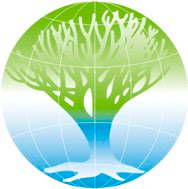

Le blog du groupe de travail sur la liberté d'association du Réseau Euro-Méditerranéen des Droits de l'Homme.
08/12/2010
Revue annuelle du REMDH sur la liberté d’association dans la région euro-méditerranéenne – 2010
Copenhague – 31 octobre 2010: A l’occasion de la réunion du Groupe de travail du Réseau euro-méditerranéen des droits de l’Homme (REMDH) sur la liberté d’association, tenue à Beyrouth (Liban), ces samedi et dimanche 30-31 octobre, le REMDH a lancé son quatrième Rapport annuel sur le suivi de la situation des ONG dans les 11 pays de l’Est et du Sud de la région méditerranéenne et en Europe.
Un examen attentif de l’évolution de la liberté d’association dans la région euro-méditerranéenne, au cours des dernières années, révèle que celle-ci a été battue en brèche au fil des ans et que les avancées dans la région ont été l’exception plutôt que la règle.
Depuis la publication du premier Rapport du REMDH sur la question en 2007, certains pays ont amendé leurs lois sur les ONG (Jordanie) – ou ont évoqué leur modification prochaine (Égypte, Syrie) – ou encore ont modifié des lois ayant un impact sur les activités de celles-ci (Israël, Tunisie ). La tendance observée depuis trois ans est celle visant à imposer de nouvelles restrictions au nom de l’ordre public, de la sécurité et de la lutte antiterroriste. Celles-ci aboutissent au refus arbitraire d’enregistrer nombre d’associations, notamment celles actives dans la défense des droits de l’Homme (Libye, Syrie, Tunisie), y compris la promotion de la diversité et des minorités (Grèce, Liban, Maroc, Syrie, Turquie), ainsi qu’à l’ingérence toujours plus étendue des autorités dans leurs activités, en contrariété avec l’esprit et la lettre de l’article 22 du Pacte international relatif aux droits civils et politiques : obstacles au droit de réunion pacifique (Algérie, Israël, Égypte), intervention au sein de leur conseil d’administration (Syrie, Tunisie) ou encore dissolution arbitraire (Palestine).
Ces développements laissent les militants et militantes associatifs actifs dans le domaine des droits de l’Homme dans une situation dramatique, tel qu’en témoignent les agressions physiques et morales, les campagnes de dénigrement, les restrictions à la liberté de mouvement auxquelles ils font face dans un certain nombre de pays de la région Est et Sud de la Méditerranée. Les condamnations de militants associatifs, parfois jugés devant des tribunaux militaires, sont encore de tristes illustrations de la tendance restrictive observée depuis trois ans.
Sur une note plus positive, le REMDH a récemment eu l’opportunité de saluer la Résolution du Conseil des droits de l’Homme des Nations Unies, adoptée le 20 septembre 2010, nommant pour une période de trois ans un Rapporteur spécial sur le droit de réunion et d’association pacifiques. Le REMDH considère en effet qu’un engagement politique clair est désormais nécessaire pour mettre en œuvre pleinement les standards internationaux relatifs à la liberté d’association dans la région Moyen-Orient/Afrique du Nord.
A l’instar des précédents Rapports du REMDH, ce quatrième Rapport inclut des recommandations à l’intention des 11 Etats de l’Est et du Sud de la Méditerranée ainsi qu’aux institutions de l’Union européenne dans le cadre de leurs relations avec leurs partenaires méditerranéens. Il inclut enfin deux chapitres thématiques couvrant toute la région euro-méditerranéenne : l’un sur le financement des associations ; l’autre sur le droit des étrangers à créer des associations.
Ce nouveau Rapport est disponible sur le site Internet du REMDH à l’adresse : http://fr.euromedrights.org/index.php/publications/emhrn_publications/62/4015.html
EMHRN 2010 Report on Freedom of Association in the Euro-Mediterranean Region ARA
في المنطقة الأورو-متوسطية: المجتمع المدني تحت التهديد
(كوبنهاجن-بيروت، 31 اكتوبر \تشرين الاول 2010 ) بمناسبة اجتماع مجموعة العمل المعنية بحرية التجمع والتنظيم، والمنبثقة عن الشبكة الأورو-متوسطية لحقوق الإنسان، والذي عقد في بيروت خلال عطلة نهاية هذا الأسبوع، أطلقت الشبكة الأورو-متوسطية تقريرها السنوي الرابع حول التطورات التي طرأت على أوضاع المنظمات غير الحكومية في أحد عشر بلداً من منطقة جنوب وشرق المتوسط ومن أوروبا، وكانت الشبكة قد أصدرت تقريرها الأول في عام 2007.
يكشف التفحص الدقيق للتطورات الأخيرة في المنطقة الأورو-متوسطية أن حرية التجمع والتنظيم شهدت انتكاسات خلال السنوات القليلة الماضية، ,أنه لم تحدث سوى تطورات إيجابية قليلة كانت هى الاستثناء بدل من أن تكون القاعدة العامة .ً
منذ عام 2007، قامت بعض البلدان بتعديل قوانينها التي تنظم مؤسسات المجتمع المدنى غير الحكومية مثل (الأردن)، أو أعلنت عن نيتها إجراء تعديلات لقوانينها مثل (مصر، سوريا)، في حين أعادت دول أخرى صياغة تشريعاتها بأساليب كان لها تأثير مباشر على نشاطات المنظمات غير الحكومية مثل (إسرائيل، تونس). وبتحليل الاتجاهات السياسية لهذه البلدان فى السنوات الثلاث الماضية نجد أن السمة الرئيسية هى وضع قيود جديدة باسم "النظام العام" و"الأمن ومكافحة الإرهاب". وقد أدت هذه القيود إلى حرمان العديد من المنظمات من التسجيل بطريقة تعسفية، وخصوصاً المنظمات الناشطة في مجال حقوق الإنسان فى بلدان مثل (ليبيا، سوريا، تونس)، بما في ذلك المنظمات التي تناصر التنوع وحقوق الأقليات مثلما يحدث فى (اليونان، لبنان، المغرب، سوريا، تركيا). وقد تجلت هذه القيود أيضاً على شكل تدخل متنامي باستمرار في نشاطات المنظمات غير الحكومية من قبل السلطات، على سبيل المثال عبر إعاقة الحق في التجمع السلمي وهو ما رصد فى (الجزائر، إسرائيل، مصر)، والتدخل في شؤون مجالس أمناء المنظمات مثلما حدث فى (سوريا، تونس) أو حل المنظمات على أساس تعسفي حالة (فلسطين).
وهى الاجراءات التى تتعارض مع روح ونص المادة 22 من العهد الدولي الخاص بالحقوق المدنية والسياسية.
وقد جعلت هذه التطورات نشطاء حقوق الإنسان يعانون من وضع غير أمن، أبرز سماته الاعتداءات البدنية والنفسية، وحملات التشهير، والقيود على حرية الحركة ضد العديد من النشطاء في عدة بلدان في جنوب المتوسط وشرقه. كما يتعرض نشطاء المنظمات غير الحكومية إلى صدور أحكام بالسجن بحقهم، وأحيانا من قبل محاكم عسكرية، مما يمثل أيضاً دليلاً مؤكدا على تشدد أكثر فى السياسات وهو ما تم رصدرة خلال السنوات الثلاث الماضية.
ومن التطورات الإيجابية، ترحبت الشبكة الأورو-متوسطية بقرار مجلس حقوق الإنسان التابع للأمم المتحدة الصادر مؤخراُ فى أيلول/سبتمبر 2010 وقراره ، والذي نص على تعيين مقرر خاص معني بالحق في التنظيم والتجمع السلمي تمتد ولايته لمدة ثلاث سنوات. وتعتقد الشبكة أن ثمة حاجة حالياً لإظهار التزام سياسي واضح من أجل التنفيذ الكامل للمعايير الدولية المتعلقة بحرية التجمع والتنظيم في منطقة الشرق الأوسط وشمال إفريقيا.
يتضمن هذا التقرير –الرابع- أيضاً، مثل التقارير السابقة، توصيات موجهة إلى البلدان الأحد عشر في منطقة جنوب وشرق المتوسط وإلى مؤسسات الاتحاد الأوروبي في سياق علاقته من البلدان المتوسطية، كما يتضمن التقرير فصلين يتناولان موضوعين محددين يشملان المنطقة الأورو-متوسطية بأكملها. ويتناول الموضوعان لهذا العام تمويل الجمعيات وحق الأجانب في تشكيل الجمعيات.
يتوفر التقرير الجديد للشبكة الأورو-متوسطية على موقع الإنترنت التابع للشبكة على العنوان: http://ar.euromedrights.org/index.php/publications/emhrn_publications/62/4672.html
EMHRN 2010 Report on Freedom of Association in the Euro-Mediterranean Region
Publication of the EMHRN 2010 Report on Freedom of Association in the Euro-Mediterranean Region: A Threatened Civil Society
Copenhagen – 31 October 2010: At the Occasion of the Euro-Mediterranean Human Rights Network’s Freedom of Association Working Group meeting, held in Beirut, Lebanon, last 30-31 October, the EMHRN launched its fourth annual Report assessing the situation of NGOs in the 11 countries of the East and South Mediterranean region[1] and in Europe since the publication of the first EMHRN Report in 2007.
A close examination of recent developments in the Euro-Mediterranean region reveals that freedom of association has experienced setbacks in the past few years and there has been very little positive development worth mentioning.
Since 2007, some countries have amended their laws on NGOs (
These developments have left human rights activists in a deplorable situation, marked by physical and psychological attacks, smear campaigns and restrictions on the freedom of movement of many activists in a number of countries of the Eastern and
On a brighter note, the EMHRN had recently the opportunity to welcome a United Nations Human Rights Council’s Resolution, adopted on September 2010, appointing, for a period of three years, a Special Rapporteur on the rights to freedom of peaceful assembly and of association as it believes a clear political commitment is now needed to fully implement the international standards to freedom of association in the MENA region.
Similarly to the previous reports, this fourth Report also includes recommendations aimed at the 11 East and South Mediterranean countries as well as at the institutions of the European Union in the context of their relations with states of the
The new EMHRN Report is available on the EMHRN website at: http://en.euromedrights.org/index.php/publications/emhrn_publications/68/4758.html
[1] Algeria, Egypt, Jordan, Israel, Libya, Lebanon, Morocco, Occupied Palestinia Territories, Syria, Tunisia, Turkey
[2] In the spring of 2010, the Tunisian government adopted a law amending Article 61bis of the Criminal Code, which provides for a lengthy prison sentence for anyone who, directly or indirectly, establishes contacts with agents of a foreign state, institution or organisation with a view to threaten the vital interests and economic security of Tunisia.
EMHRN 2010 Report on Freedom of Association in the Euro-Mediterranean Region
Publication of the EMHRN 2010 Report on Freedom of Association in the Euro-Mediterranean Region: A Threatened Civil Society
Copenhagen – 31 October 2010: At the Occasion of the Euro-Mediterranean Human Rights Network’s Freedom of Association Working Group meeting, held in Beirut, Lebanon, last 30-31 October, the EMHRN launched its fourth annual Report assessing the situation of NGOs in the 11 countries of the East and South Mediterranean region[1] and in Europe since the publication of the first EMHRN Report in 2007.
A close examination of recent developments in the Euro-Mediterranean region reveals that freedom of association has experienced setbacks in the past few years and there has been very little positive development worth mentioning.
Since 2007, some countries have amended their laws on NGOs (
These developments have left human rights activists in a deplorable situation, marked by physical and psychological attacks, smear campaigns and restrictions on the freedom of movement of many activists in a number of countries of the Eastern and
On a brighter note, the EMHRN had recently the opportunity to welcome a United Nations Human Rights Council’s Resolution, adopted on September 2010, appointing, for a period of three years, a Special Rapporteur on the rights to freedom of peaceful assembly and of association as it believes a clear political commitment is now needed to fully implement the international standards to freedom of association in the MENA region.
Similarly to the previous reports, this fourth Report also includes recommendations aimed at the 11 East and South Mediterranean countries as well as at the institutions of the European Union in the context of their relations with states of the
The new EMHRN Report is available on the EMHRN website at: http://en.euromedrights.org/index.php/publications/emhrn_publications/68/4758.html
[1] Algeria, Egypt, Jordan, Israel, Libya, Lebanon, Morocco, Occupied Palestinia Territories, Syria, Tunisia, Turkey
